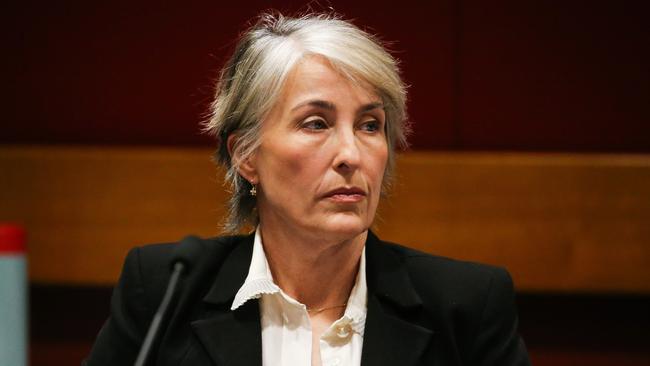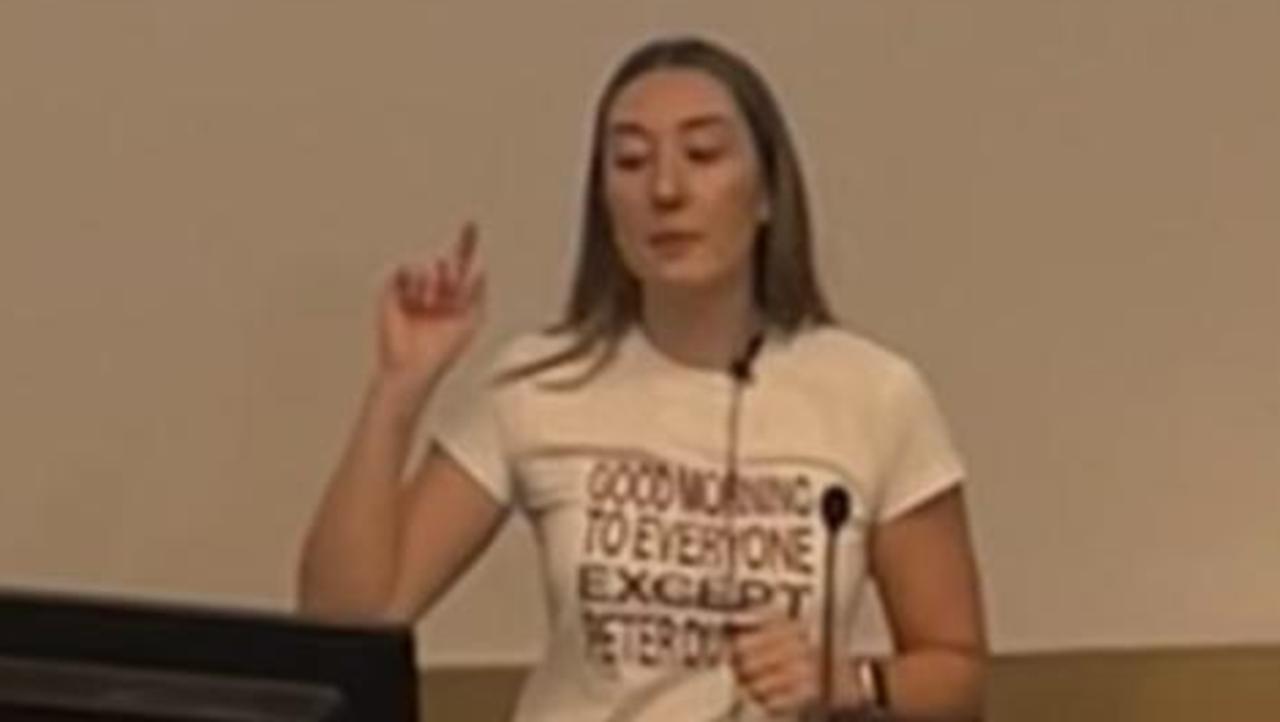Fifteen rape cases discontinued during NSW DPP Sally Dowling’s audit
The cases, which were committed to trial, have been discontinued as part of the audit launched by chief prosecutor Sally Dowling after five judges criticised her office for prosecuting meritless rape cases.

You can now listen to The Australian's articles. Give us your feedback.
Fifteen rape cases have been discontinued following an audit launched by NSW chief prosecutor Sally Dowling after a series of judges criticised her office claiming it was running meritless rape cases, with the full results of the highly-anticipated probe due to be made public in a matter of weeks.
Ms Dowling, addressing a NSW budget estimates committee on Wednesday afternoon, said 330 cases set down for trial this year have been audited by experienced crown prosecutors, with the results of 11 matters still pending.
The audit was announced by Ms Dowling in March, after five NSW District Court judges accused her office of running sexual assault cases that had no hope of securing a conviction.
The full findings of the audit will be published by the end of October, once looked over by an external academic source. However, Ms Dowling revealed fifteen matters have been discontinued.
“Eight were terminated on evidentiary grounds and seven were terminated on either discretionary grounds or a combination of discretionary and evidentiary grounds,” she said.
She said of the eight matters terminated on evidentiary grounds, she understood it was likely they “would have been identified in the normal course of the prosecution because some of these matters were many months out from trial”.
Asked how she came to this understanding, Ms Dowling said “in the life of a prosecution, the viability of the prosecution is constantly under review”.
“For example, and this is just a hypothetical example, if a matter was listed for trial in November and it’s being reviewed in April, it is likely that between April and November a very detailed review of that would have been taken in the normal course,” she said. “The crown prosecutor who is going to be running that matter, when in preparation for that matter would have identified the problems with that and sent it up.”
There were 10 matters identified as “non-compliant with the prosecution guidelines”, but Ms Dowling said “not all of those have been discontinued”.
“In all of those matters, late brief service was a contributing factor,” she said. “So that means that the time for certification of those charges was much truncated due to the late receipt of the brief, and that resulted in intense time pressures for the certifier at the ODPP.”

Ms Dowling said the review has “demonstrated consistently high standard of legal analysis by the prosecution teams in an area of the law that is complex”.
“No systemic issues have been identified, but opportunities for improvement have been noted,” she said.
Ms Dowling said “no unwritten policies have been identified” as a result of the audit.
The NSW Judicial Commission last month upheld a complaint made by Ms Dowling against judge Robert Newlinds, after he had accused her office of making “lazy and perhaps politically expedient” referrals of meritless rape accusations to court.
Judge Newlinds also raised a “deep level of concern” that there “is some sort of unwritten policy” within the ODPP that sees matters go to court that have no hope of conviction.
The watchdog recommended Judge Newlinds be sidelined from criminal trials after deriding the prosecution office “without notice or evidence”.
NSW District Court judge Peter Whitford is also the subject of a complaint from Ms Dowling, after he accused her office of prosecuting matters “without apparent regard to whether there might be reasonable prospects of securing a conviction”. The result of the complaint against him is unknown.
Liberal MP Susan Carter during estimates questioned what would happen if an ODPP staff member did not believe the matter should proceed to trial.
Ms Dowling said: “People are not being forced to run matters in my office.”
Want this content (and more!) in your inbox? Click here to sign up to The Australian’s weekly legal affairs newsletter.






